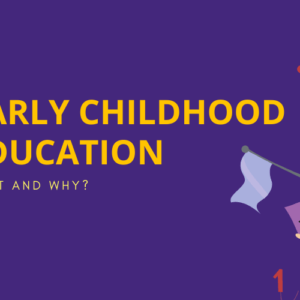The Best Ways To Build a Child’s EQ with Stories
A story carries a language of its own. If you look back at the days of your childhood, you are bound to remember stories that were told to you by your favorites adult – usually your mother, father, a grandparent, an aunt, your teacher, or even a friend! A few stories, probably just a handful, never leave you. They carry subtle elements of emotional intelligence. Such stories remain in our conscience forever. They teach you morality. Stories prepare you for life.
Stories make for a fail-proof way to build a child’s Emotional Quotient. Find out THE BEST ways to rope in imaginary artists from the Kingdom of Far Far Away and get them to build your child’s EQ. Let’s get started.
Why should you consciously build your child’s EQ?
EQ (Emotional Quotient) or Emotional intelligence helps a child to understand feelings arising within oneself and also feelings displayed by everyone else. Mainly, EQ teaches an individual to manage these feelings and emotions in ways that preserve and build strong relationships with others. EQ is an approach to life. EQ can be built upon and practiced at any age. However, the younger you are, the better chances that you will grow up to be a person with higher EQ. leading to a well-adjusted and more fulfilling life. Stories are perhaps the most effective way of instilling tenets of emotional intelligence into the conscience of a child.
Here is how you can bring stories into your child’s life
- Read Stories from books. Everyday. Repeat your child’s favourite stories as often as they are demanded. Sign up with platforms such as StoryWeaver or TulikaBooks and get your share of free downloads of some truly amazing stories with an Indian touch.
- Go back to your own childhood and try to re-create your own childhood favourites. Think about the stories that took your fancy. You will realise that your favourite stories are the ones that made a deep emotional connect with you. If you can’t remember every detail of your story; re-construct some parts, while retaining the essence of the story. Watch the magic as you see the wonderment in your child’s eyes. In a way, you can re-live your favourite story.
- Do a puppet show with homemade props. Be innovative. Get your child to be your prop creator, so that it doubles up as a craft activity! Puppets add a great degree of tangibility to your story. Puppets/ props also build an immediate sense of empathy. Your child is more likely to love the prop or puppet after a good story.
- Listen to audio stories. Audio stories allow the imagination to take flight. They also help a child to create characters and scenarios based on his/her own unique imagination. A fun way to take an audio story to the next step would be to ask the child to re-create the story through a drawing. It will give you a peek into your child’s world of colours, perception, and creativity.
Here’s how you can become a ‘Rockstar EQ Storyteller’
Choose your stories wisely.
Consciously look for stories that help children deal with emotions. Allow your child to embrace all emotions – negative as well as positive.
One of the most important aspects of Emotional Intelligence is to embrace all kinds of emotions. There is no such thing as an undesirable emotion. The more emotions you cover, the more aware your child will be about his/her own emotions and feelings and eventually those of others.
Remember to form a story-time routine for your child. Bedtime stories work really well. You can even try out a ‘Drop Everything And Read’ model, which gives you higher flexibility of time. Right after a story, your child will wander off to experience colourful dreamy adventures; on bit more emotionally intelligent, with every new story.
Conclusion:
Emotional intelligence is tied to many other key strengths. Learning how to instill emotional intelligence in your child can help empower him or her. It is also the foundation for your child to build his or her self-esteem and social skills. Therefore, imparting emotional intelligence to your children through stories can be crucial in helping your children become adults who work through challenges and respond to situations successfully.





Developing emotional intelligence through stories help the children to come across different emotions .
1. it helps them to go on a emotional journey through these characters.
2. helping them to develop moral values and promotes creative thinking
3. it develops feelings and logical reasoning based on judgement.
4. helps us to relate the situation to our self by developing compassion and self.-love
it helps them to reflect themselves
language development takes place.
it helps them to reflect themselves and help them in
language development and cognitive development
Emotional Intelligence is to embrace all kinds of emotions.